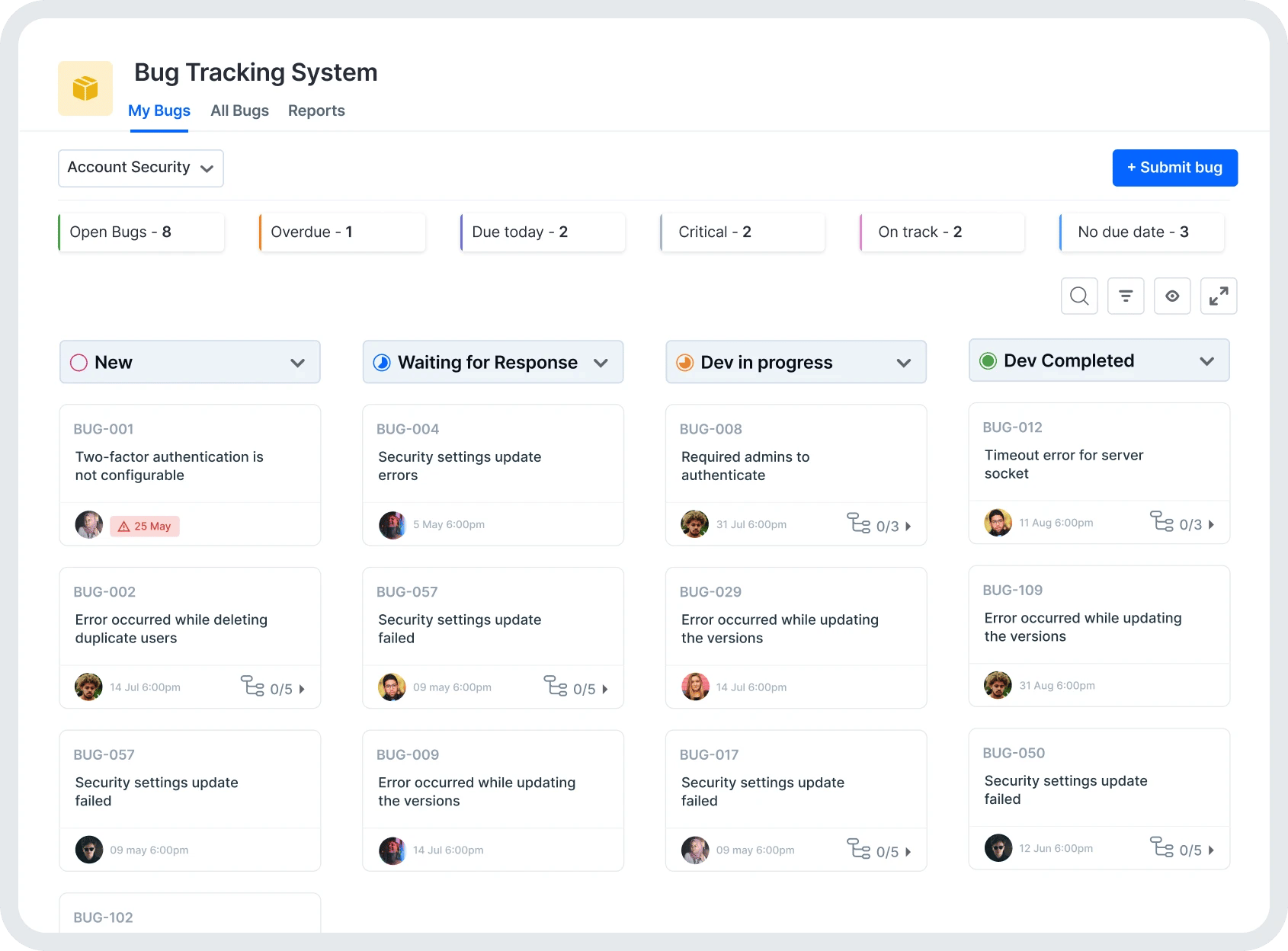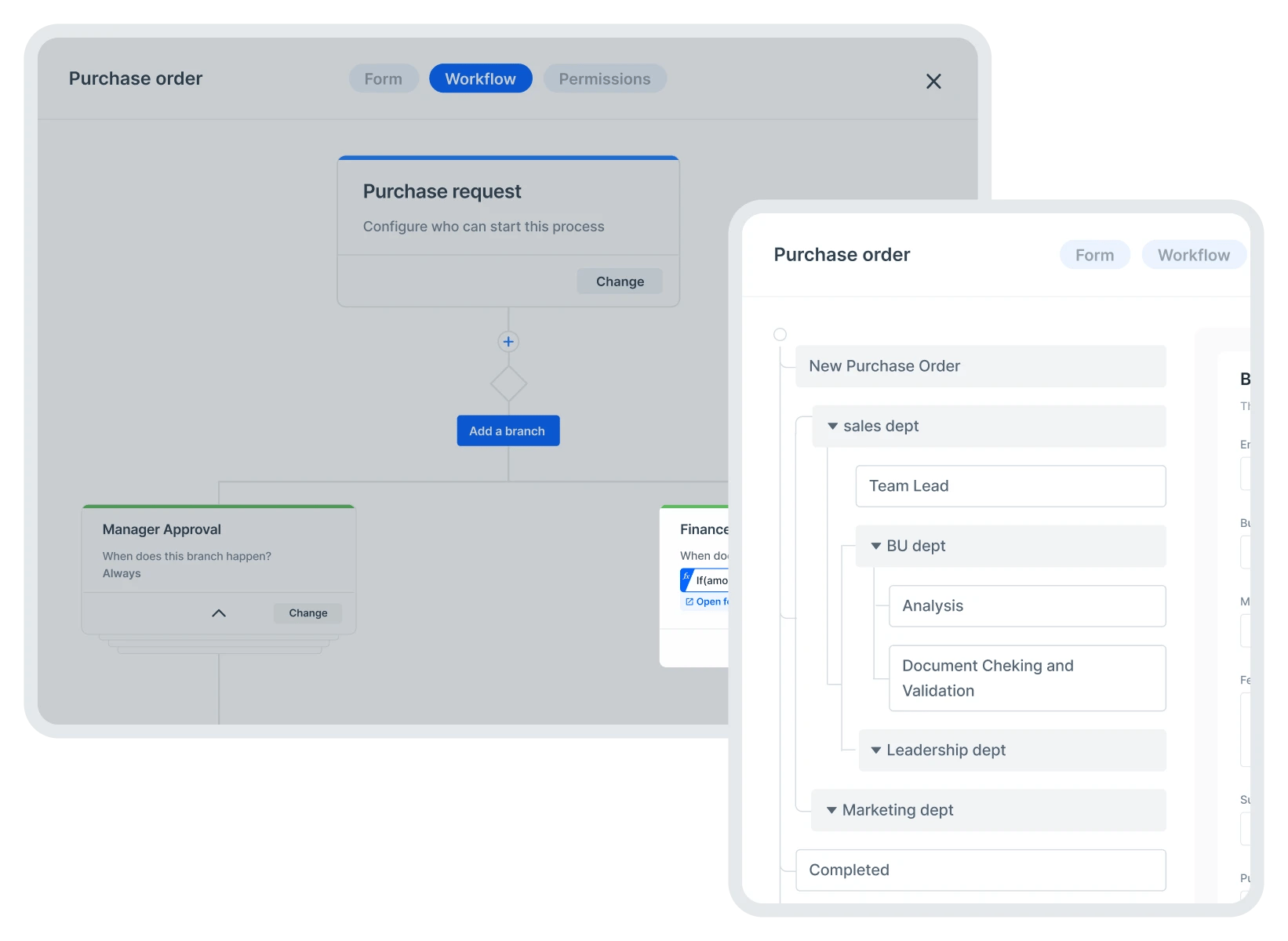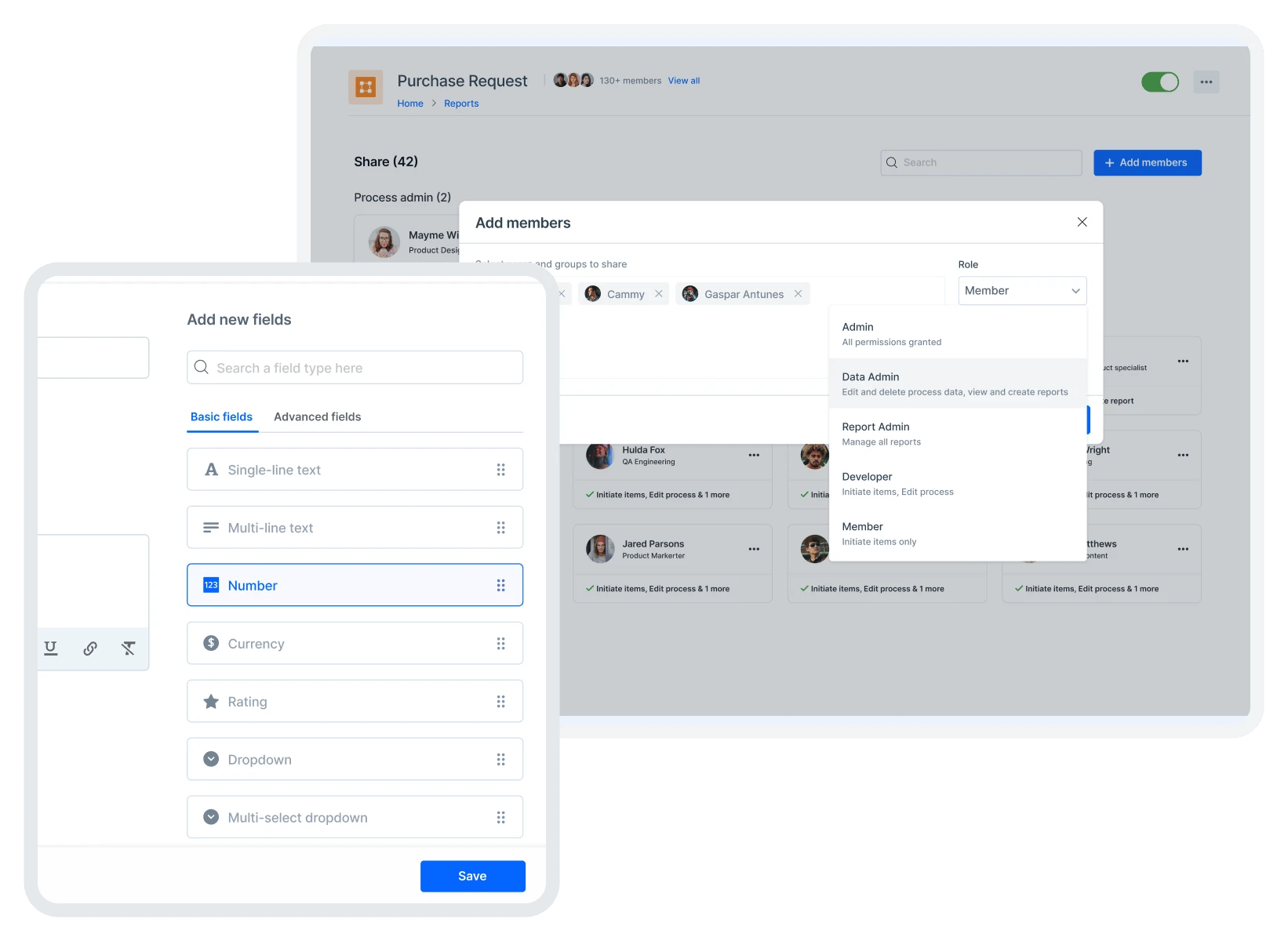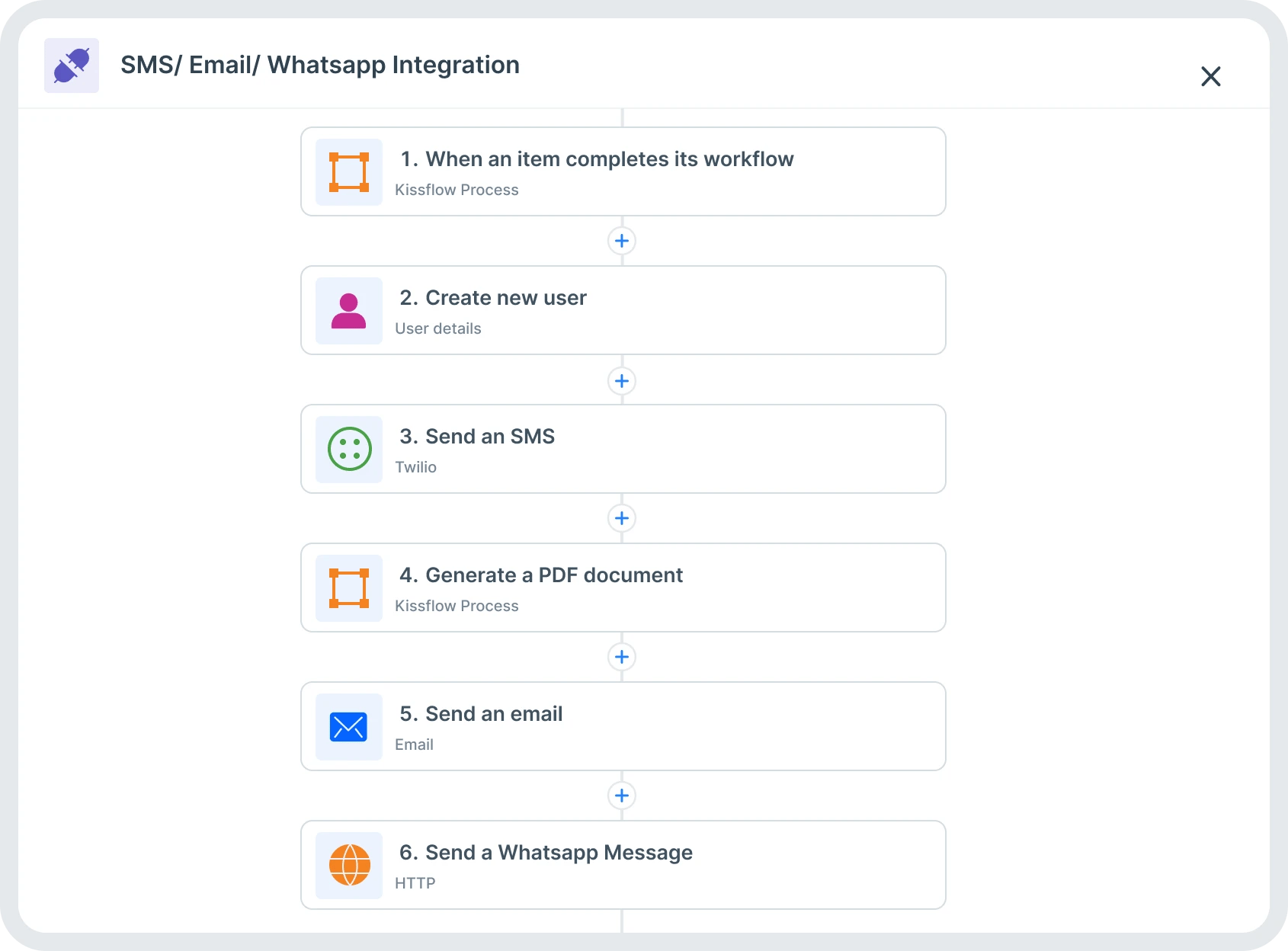Easy Automation:
Innovate With Process Management Software
A simple and innovative way to build enterprise-grade processes
 >
>
Welcome back,
It's a pleasure to reconnect with you! Check out this eBook for fresh perspectives to drive your digital transformation forward.
Take the Assessment


Structured for endless process evolution
Achieve and maintain process excellence with a wide range of benefits

Tailored
processes
Customize processes and ensure greater alignment with business goals and processes that fit like a glove

Enhanced
productivity
Reduce manual effort and errors by automating processes, enabling teams to focus on more strategic tasks

Cross-functional synergy
Foster teamwork across departments, break down silos, and promote cross-functional cooperation

Long-term adaptability
Ensure that the system remains aligned with the evolving needs of the business and maintains process excellence
You are just 3 steps away from process excellence
Create forms that capture accurate and relevant information to meet your unique requirement
Accelerate decision-making with pre-defined workflows to keep your processes flowing seamlessly
Keep a comprehensive record of user actions with detailed accountability and audit trails
Create forms that capture accurate and relevant information to meet your unique requirement
Accelerate decision-making with pre-defined workflows to keep your processes flowing seamlessly
Keep a comprehensive record of user actions with detailed accountability and audit trails
Robust features that move your
processes forward
Simple to use
-

No coding necessary
Build, automate, and manage processes without code
-

Smart Boards
Create freestyle workflows and projects on adaptable smartboards

Streamlined processes
-

Stay organized
Plan your processes, set priorities, and assign them to your team
-

Clutter-free
Get work completed and keep the process mess-free and on track

Unhindered flexibility
-

Fluid forms
Design fully custom forms that fit any type of process requirements
-

Set permissions
Control who can start a process and what data users can see or edit at each step

Extensive connection
-

Integrate with zero code
Connect workflows across different processes to streamline complex, multi-step operations with zero code.
-

Seamless transition
Switch from structured to unstructured workflows without missing a beat.

All your workflows on a single platform
Explore Appstore >
- Employee Onboarding
- IT Incident Management
- Lead Qualification
- Travel request
- Compliant Management
- Contract Renewal
- CAPEX Request
- RFP Approval
- Corporate Card Request
- Accounts Receivable
- Admin Service Request
- Budget Transfer
- Compliant Management
- Customer HelpDesk
- Performance Appraisal
- Access Requests
- Employee Expense Claim
- Performance Bonus
All your apps on a single platform
Explore Appstore >- Employee Onboarding
- IT Incident Management
- Lead Qualification
- Travel request
- Compliant Management
- Contract Renewal
CAPEX RequestRFP ApprovalCorporate Card RequestAccounts ReceivableAdmin Service RequestBudget Transfer
- Compliant Management
- Customer HelpDesk
- Performance Appraisal
- Access Requests
- Employee Expense Claim
- Performance Bonus
Talk to our experts
Sign up for Kissflow today and unlock the power of custom processes
-
Learn to build custom processes that fit your needs
-
Get the most out of ready-to-deploy templates
-
Schedule a demo and see the Kissflow in action
By proceeding, you agree to our Terms of Service and Privacy Policy
Thank you for your interest in exploring Kissflow. Our solution experts will get in touch with you within one business day.
The voice of our satisfied customers

"This is so easy, even my mom could do this. It was extremely intuitive and straightforward. The watermark was, 'I don't need to call IT to do this. I can do it myself.' "
Renee Villarreal
McDermott
"I designed it, tested it, and had it ready in a week. The platform is simple and highly intuitive, so anyone can use it."
Ajit Singh
Caratlane

"Kissflow's integration with Snowflake and Tableau has saved time, improved data quality, and automated our business processes. This has resulted in increased productivity and operational efficiency.”
Eduardo Meza
Motorola Solutions








